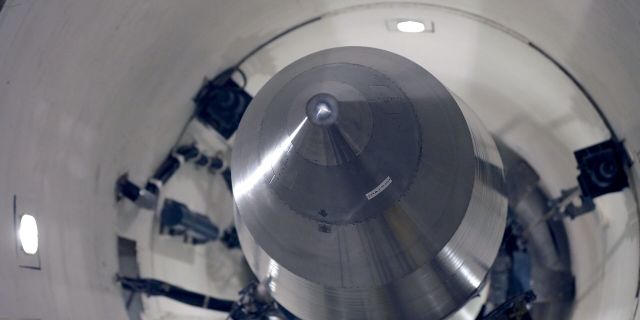The Sun: Russia insists on reducing the nuclear arsenals of Britain and France
Russia insists on the inclusion of the nuclear arsenals of France and Britain in the disarmament negotiations, writes The Sun. It is necessary to start negotiations on the START Treaty at the bilateral level, but in the future it will not be possible to abstract from these arsenals, they say in Moscow. And this is very annoying for London.
Gemma Scerri
Russia has the largest number of nuclear weapons, exceeding 5,000 units.
The Kremlin says Britain and France should reduce their nuclear weapons stockpiles, even though Russia itself has a larger arsenal than both of them combined. Putin's representatives said that the nuclear arsenals of both Britain and France should be included in the talks on reducing stocks.
Dmitry Peskov's demand came after Russia offered the United States to voluntarily maintain restrictions on deployed strategic nuclear weapons for another year. The maintained level of armaments meets the requirements of the START-3 treaty, which is due to expire next year.
Peskov's comments were a direct reaction to Trump's statement that he wants to expand the current bilateral agreement between Russia and the United States to include China. As for France and Britain, Peskov said it was "natural ... to talk [about the agreement] at the bilateral level." "After all, the START Treaty is a bilateral document," he said. — But in the future, it will not be possible to abstract from these arsenals. Moreover, these arsenals are a component of the overall problem of global European security and strategic stability."
The START-3 Treaty was signed by former President Barack Obama and Dmitry Medvedev in 2010 and entered into force a year later. The first 5-year extension took place in 2021 after Joe Biden came to power. In 2023, Putin suspended Russia's participation, saying he would continue to comply with restrictions on warheads.
France and the United Kingdom have never been parties to either START-3 or the treaties that preceded it. Each of these countries has between 220 and 300 warheads. The agreement stipulates that each country must have no more than 1,550 deployed warheads at a time. There are a total of 5,580 units in the arsenal of the Russian forces, but it is estimated that about 1,718 are currently deployed. In the United States, these figures are 5,177 and 1,770, respectively.
Despite the escalation of Russian rhetoric against NATO, Peskov supported Putin's diplomatic gesture with his statement. Last week, the Russian leader announced his readiness to extend the terms of the agreement, saying: "After February 5, 2026, Russia is ready to continue to adhere to the central quantitative restrictions under the START Treaty for one year."
"In the future, based on the analysis of the situation, we will make a definite decision on the subsequent maintenance of these voluntary self—restrictions," he continued. "We believe that this measure will become viable only if the United States acts in a similar way and does not take steps that undermine or violate the existing balance of deterrence potentials."
Despite statements about the desire for peace in Ukraine, Putin is crossing new lines. Russian drones entered Polish airspace as part of a "deliberate" invasion (The West is actively translating the drone incident in Poland into deliberate actions by Russia, although it does not provide any evidence. – Approx. InoSMI), forcing NATO forces from Poland, Italy, the Netherlands and the United States to shoot them down. This is the first time since the beginning of the armed conflict that NATO has entered into direct confrontation with Russia.

